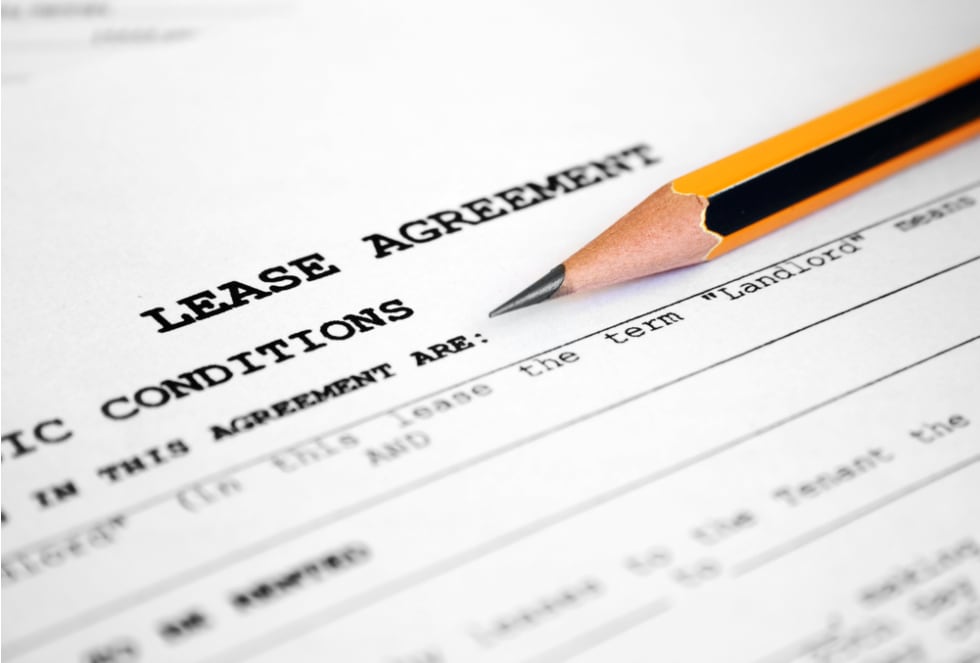Month to Month Lease: Landlord Pros & Cons + FAQs

If you're a busy landlord trying to determine annual lease alternatives, a month-to-month lease may be the right choice for you. There are pros and cons to a monthly lease agreement, but we did all the research to decide what's best for you.
When Would You Use a Month-to-Month Agreement?
A month-to-month lease agreement covers 30 days and automatically renews at the end of the month until either party terminates it. Landlords and renters alike often prefer the flexibility of a month-to-month lease.
Renters who aren't sure about their long-term plans are willing to pay higher prices for a monthly lease. Landlords can also try a monthly arrangement if they plan to renovate their unit in a few months.
Pros & Cons of Month to Month Lease Agreements
If you think a month-to-month lease agreement is suitable for your apartment rental business, here's what to consider before you find your next renter.
Pros for Landlords
Let's start with the pros of a monthly lease agreement and how it can benefit landlords.
Higher Rent Prices
It's industry-standard for rental prices to be higher on a month-to-month lease, and it's usually worth the higher rent to tenants who need the flexibility. A rent increase is also a win for landlords looking to infuse more cash flow into their business.
Landlords are also responsible for dealing with monthly paperwork, and the possibility that their tenant will terminate the agreement after a month. Charging higher rent protects you from a lag in rental income and compensates you for the extra work involved.
Flexibility
Flexibility is desirable for both renters and landlords signing month-to-month lease agreements. Landlords can choose to raise rental prices at any time the tenant renews, and they can also decide not to offer the lease after a few months if they decide they don't like the arrangement.
New landlords may also prefer the flexibility of a month-to-month lease, and they can test the waters of running a rental business before committing to a long-term lease.
Trial Run
Most landlords have dealt with a demanding tenant or someone who can't seem to pay their rent on time. A month-to-month lease agreement lets the landlord see if the renter is a good fit before extending the lease terms to a longer length.
Cons for Landlords
Despite all of the pros of a month-to-month lease agreement, there are some cons to consider before you find your next tenant.
Turnover
Turnover is an issue for landlords when offering month-to-month leases. Renters often want a short-term lease arrangement to explore their new city, relocate on a whim, or need temporary housing to deal with a family issue or new work arrangement.
Landlords never know when a lease agreement might end. Depending on where you live, your state may require a 30-day notice for both the landlord or tenant to end a month-to-month lease. Other states only require 1 to 2 weeks; others require up to 90 days.
Uncertainty
In today's rental market, apartments are in short supply, but tenants have faced fallout and financial issues from the pandemic. Today, there is more uncertainty in the rental business, which can cause more stress and scrambling to fill empty apartments.
Make sure the rent you charge for a month-to-month agreement is worth the uncertainty in your business.
Less Stable Income
Charging more for a monthly rental is a significant pro for landlords and well-earned. Monthly lease agreements are risky and often mean less stable income. Without knowing your annual projected income, it could be challenging to plan for upgrades and repairs if you're not sure when there may be gaps in tenant turnover.
Landlords should plan ahead and set aside the appropriate finances to bridge the gap during a lag in tenant turnover. Of course, when you can charge higher rents, your income can actually increase even if your unit isn't full the entire year.

Month-to-Month Lease Agreement Components
Just like a traditional lease, a month-to-month lease agreement is a formal contract. The monthly agreement will include:
- Apartment location
- Lease Term
- Lease payments
- Late Charges
- Insufficient Funds
- Security Deposit
The rest of your contract should resemble a traditional lease agreement and include information on making any alterations to the premises, visitors, and defaults. Speak to your lawyer or legal professional about your monthly lease agreement.
How to a Find Renters for a Month-to-Month Lease
There's good news for landlords looking for tenants for a month-to-month lease agreement. With such a low supply on the market for monthly rentals, landlords are likely to have their pick of eager renters.
If you're unsure how to get the word out, start by letting your current, long-term tenants know. They're likely to spread the word or know someone who is looking. Advertising your month-to-month apartments on social media and apartment finders is also effective.
Apartment List offers services to landlords and property managers looking for tenants. Sign-up and start advertising your month-to-month lease agreement to find the ideal renter for you.
Frequently Asked Questions About Month to Month Rentals
Is it hard to find renters for a month-to-month lease agreement?
Typically, no. Monthly rental agreements are often complicated for tenants to find and are in high demand. Landlords will need to do a little legwork to find the right tenant, but they are out there and ready to sign.
The exception is if you live in a market where month-to-month leases are typical. For example, a town known for its digital workforce or snowbirds coming in for the winter is more likely to have an abundance of month-to-month apartments on the market.
Will renters really pay more than market value on a monthly lease?
Yes! Short-term leases are riskier for landlords than renters. The landlord assumes more financial responsibility and should charge accordingly. Most rental markets have a low supply of month-to-month apartments, making it more competitive for renters looking for the flexibility they need.
Are month-to-month tenants financially reliable?
Renters may need a month-to-month lease due to poor credit or financial issues. However, that doesn't mean they're not responsible or reliable with their rent. In fact, they may be more motivated to hold onto their monthly agreement and be model tenants.
In other situations, a renter may work with a large corporation that is relocating them for a short time for work. Their companies are likely to pay the high rental prices on behalf of your renter without giving it a second thought.
Does a monthly lease need to be signed every month?
No. Monthly leases usually renew until proper notice to terminate the lease is given.
Do I need to give notice if I raise the rent on a monthly lease agreement?
Yes. Usually, the state requires a month's notice to raise the rent on a short-term rental, though you should check your local laws in advance. In many cases, state laws put the burden on the renter and require less notice from the landlord to terminate.
Final Thoughts
Month-to-month rental agreements come with their pros and cons but can be a big win for landlords. With the proper planning and organization, you can find the right tenant with the flexibility you need to run a successful rental business.
Share this Article



